Principal Investigator

Theresa Laverty
Theresa Laverty (she/her) is an Assistant Professor in the Department of Fish, Wildlife and Conservation Ecology at New Mexico State University. Her research answers questions rooted in applied population and community ecology and often takes place outside of protected areas where humans, livestock, and wildlife interact. While she has studied diverse species (e.g., beach-nesting birds, caiman, red squirrels, elephants, and mountain gorillas), Theresa’s research for the last decade has largely focused on bats. In addition to the southwestern United States, she has worked extensively in parts of Africa (Namibia, Madagascar, Kenya, and Uganda) as well as the Peruvian Amazon. She combines ecological research with social science methods to understand the basic ecology of a system, including the roles people play in the environment, in hopes of providing information that can assist managers and conservation scientists to make informed decisions. Prior to NMSU, Theresa was a postdoctoral scholar at Colorado State University and the University of Chicago. She holds a Ph.D. in Fish, Wildlife, and Conservation Biology from Colorado State University and a B.A. in Ecology and Evolutionary Biology from Princeton University. When she is not behind a computer or out in the field, Theresa enjoys all things outdoors—trail running, backpacking, fishing, photographing wildlife, etc.
Graduate Students
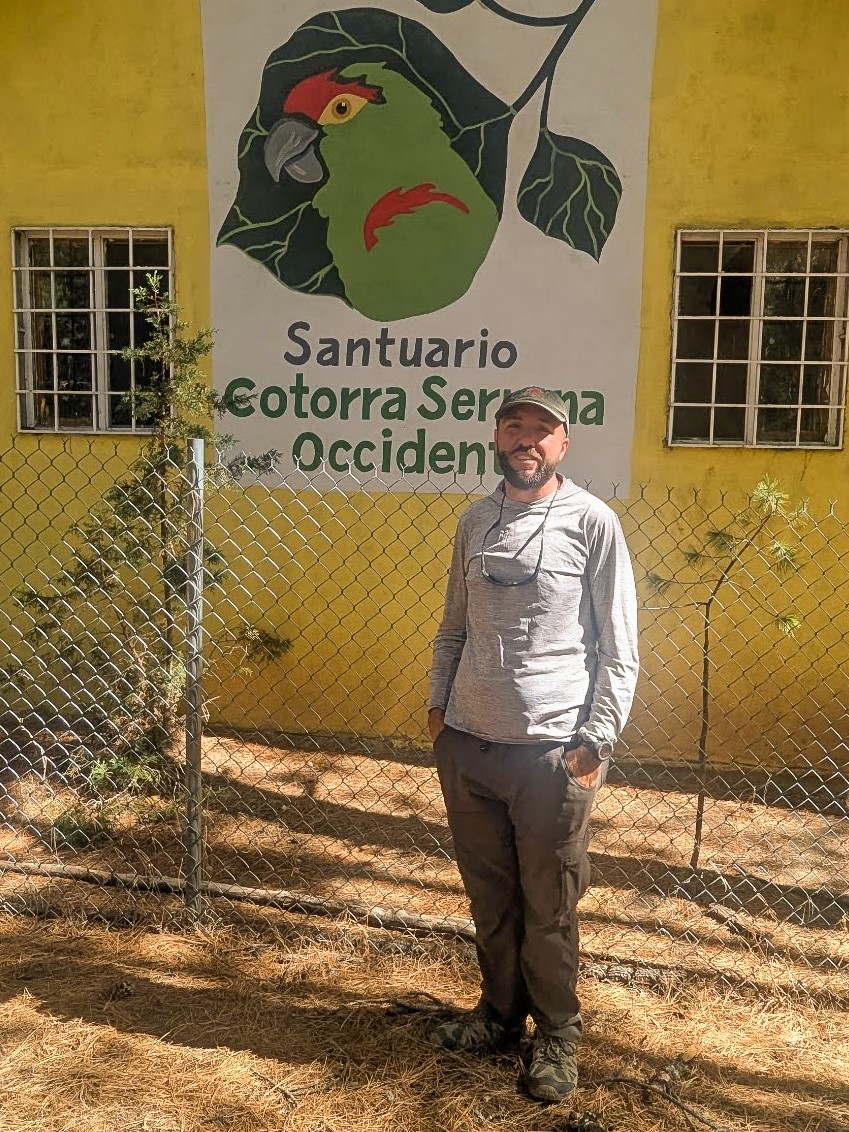
Matt Becker
Matt Becker (he/him) joined the lab in fall 2025 as a master’s student co-advised by Dr. Jennifer Frey in the Department of Fish, Wildlife and Conservation Ecology. His research focuses on the effects of wind energy development on terrestrial mammals in central New Mexico. Originally from Plainfield, Illinois, Matt received his B.S. in Conservation Ecology from New Mexico State University in 2025. As an undergraduate at NMSU, Matt worked on several wildlife monitoring projects in New Mexico, including camera trapping for the endangered Peñasco least chipmunk in the Lincoln National Forest and acoustic monitoring of Chihuahuan Desert bat communities at the Jornada Basin LTER site. In his free time, Matt enjoys traveling, hiking, camping, and photographing wildlife.
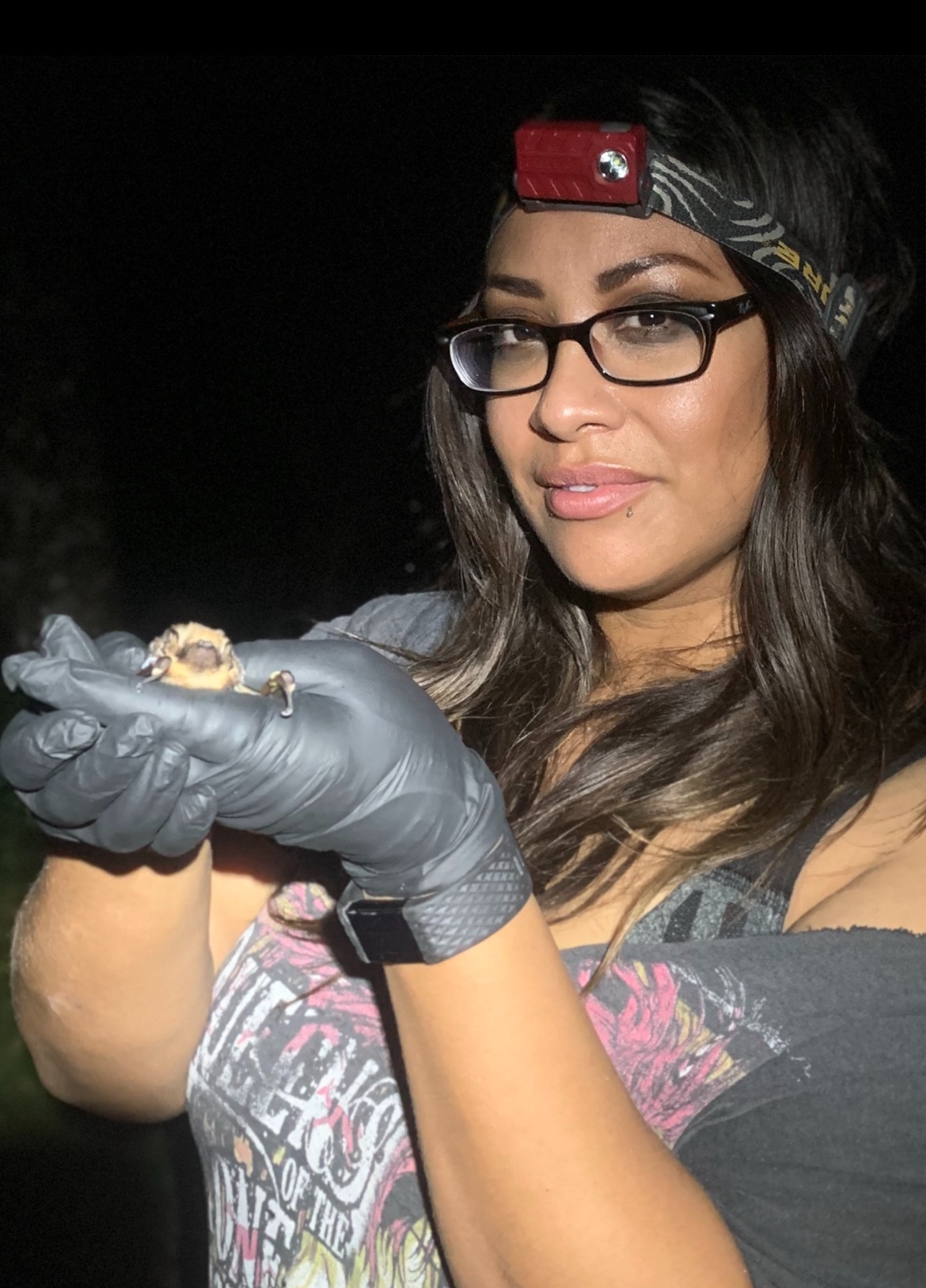
Flor Calderón
Flor Calderón (she/her) joined the lab in spring 2026 as a Ph.D. student in the Department of Plant and Environmental Sciences. Her research addresses the effects of renewable energy development (wind and solar facilities) on bat activity and behavior in New Mexico. Flor holds a B.S. in Wildlife, Fish and Conservation Biology (2016) from the University of California, Davis. She also earned her M.S. in Biology from Angelo State University in 2025, where she used GPS transmitters to study the foraging habitat and movement of the endangered Mexican long-nosed bat. Flor’s journey into bat biology began long before graduate school, shaped by over a decade of seasonal fieldwork across the western United States. She has worked with bats in deserts, mountains, and forests for federal, state, and private organizations. These experiences deepened her appreciation for both the creatures she studies and the diverse landscapes they inhabit. Although a bat person through and through, Flor also has experience working with small mammals, mesocarnivores (e.g., the endangered black-footed ferret), birds, and desert plants. As a Southern California native, she loves rock concerts, beach days, and a blend of outdoor adventures and backcountry leisure, such as glamping and lounging in large bodies of water.
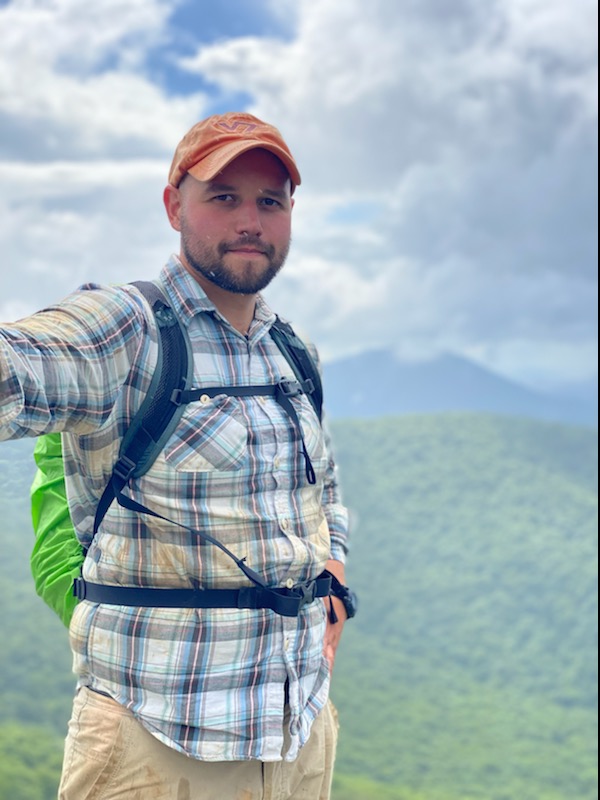
Ryan Moore
Ryan Moore (he/him) joined the lab in spring 2026 as a Ph.D. student in the Department of Plant and Environmental Sciences. His research focuses on the ecology of bat and bird communities in relation to ephemeral water sources in the Sonoran and Chihuahuan Deserts. Ryan completed both his B.S. in Fish and Wildlife Conservation (2020) and M.S. in Forest Resources and Environmental Conservation (2023) at Virginia Tech. For his Master’s work, he investigated bog turtle wetland hydrology and its influence on how bog turtles utilize these fen wetlands. As an undergraduate and graduate student, he was able to work on several long-term phenology, occupancy, and population demography projects for amphibian and small mammal species in the Florida Panhandle and Blue Ridge Mountains of Virginia. Following graduation, he worked as a field technician with Oregon State University surveying the Coastal and Cascade Ranges for terrestrial and stream-associated amphibians. Prior to joining the lab, he lived on Sanibel Island, Florida, trapping and tracking Sanibel Island Rice Rats with the University of Florida. Ryan enjoys hiking, playing guitar, and traveling.
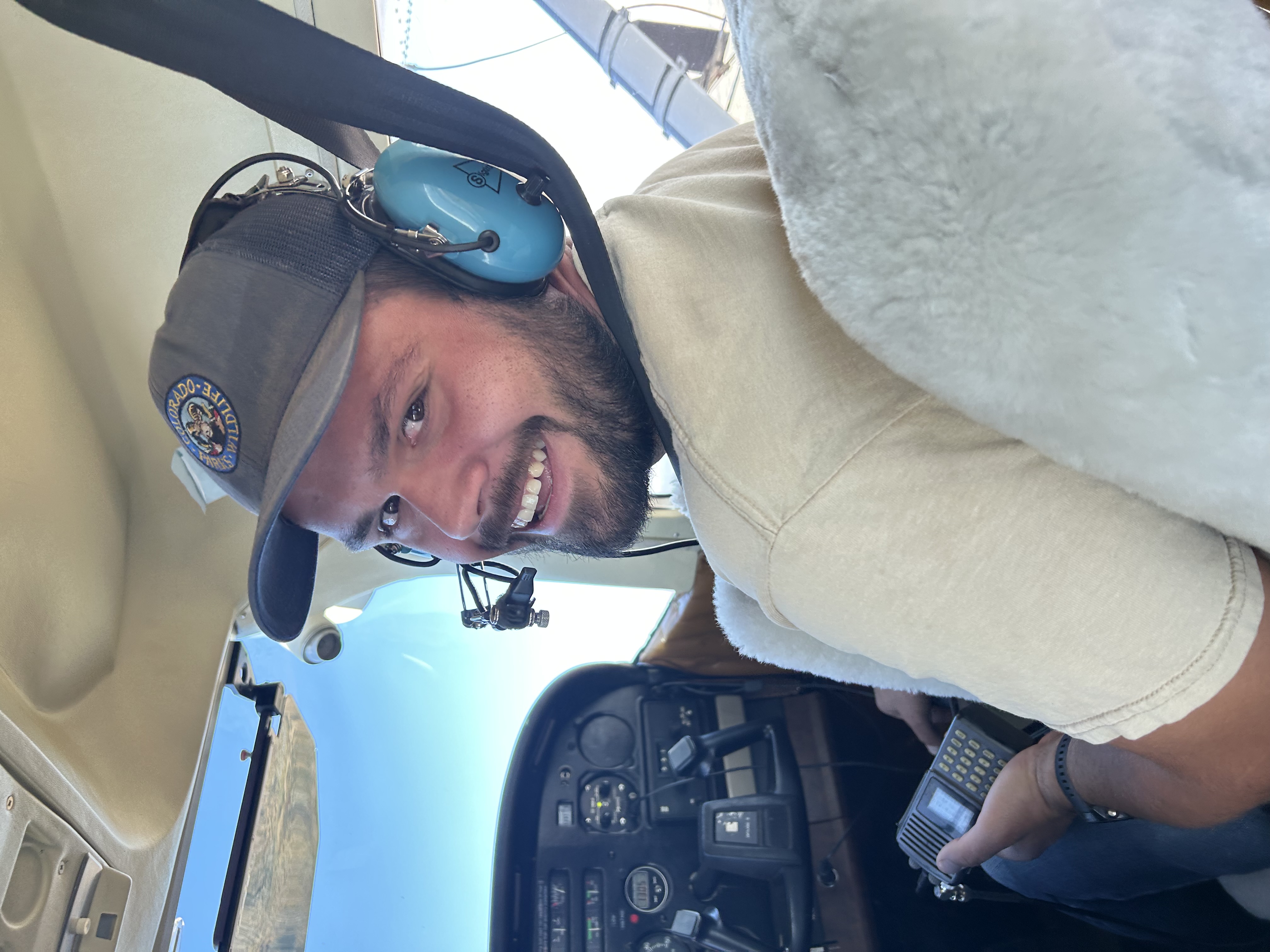
Taylor Pichler
Taylor Pichler (he/him) joined the lab in fall 2024 as a master’s student in the Department of Fish, Wildlife and Conservation Ecology. His research focuses on the interactive ecology of bats, arthropods, and plant communities at the Jornada Basin Long-Term Ecological Research site in southern New Mexico. Taylor earned his B.S. in Fisheries and Wildlife Ecology from Northland College in 2019. Before NMSU, Taylor worked on field projects with a variety of wildlife (e.g., sage grouse, prairie dogs, bats, moose, and mountain lions) as a seasonal wildlife technician for Colorado Parks and Wildlife. His previous experience with bats includes swabbing for white-nose syndrome at Colorado national parks and tracking bats to their roosts with radio telemetry. In his free time, Taylor enjoys mountain biking, hiking, and camping.
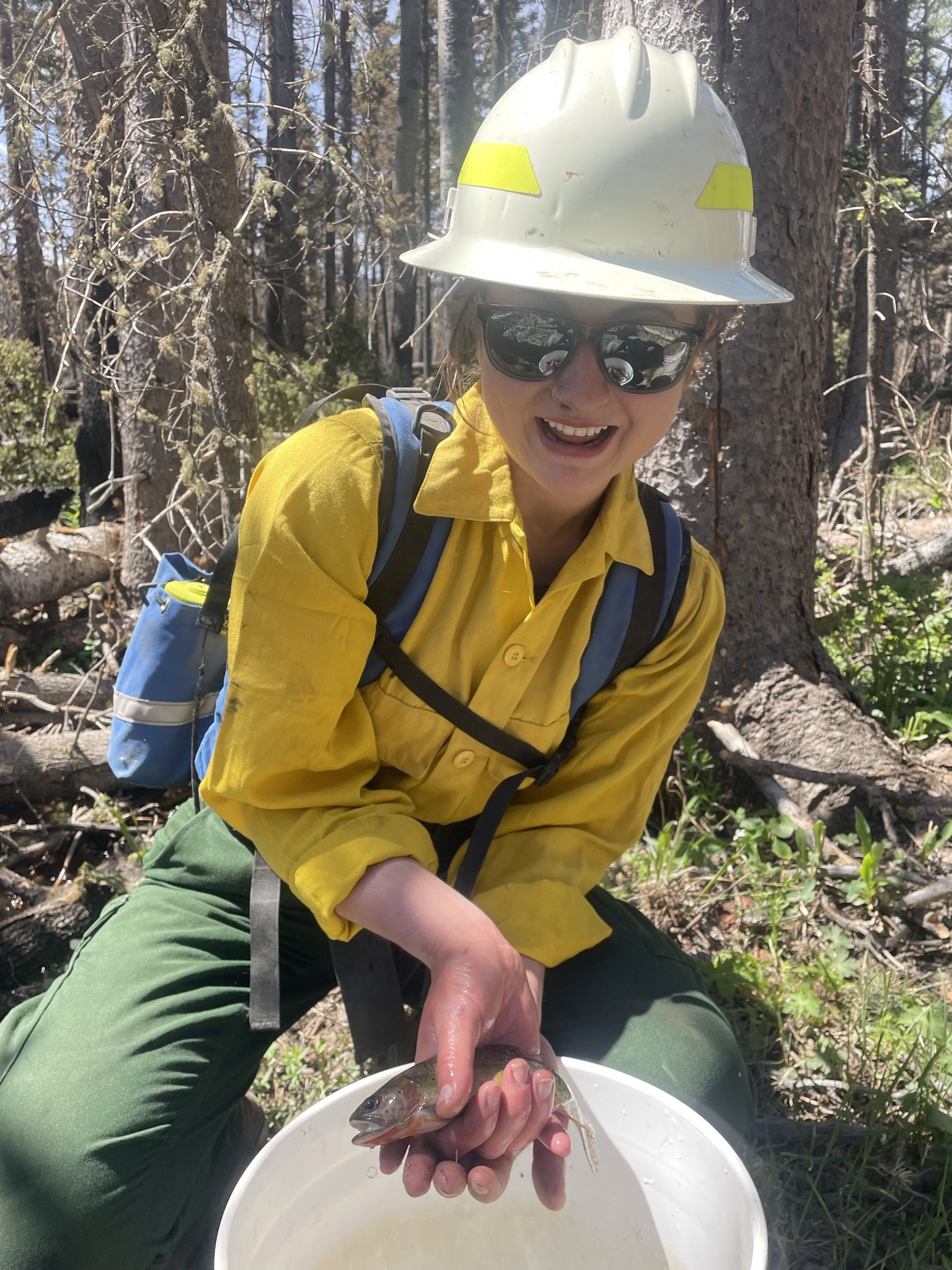
Iona Rohan
Iona Rohan (she/her) joined the lab in spring 2023 as a master’s student co-advised by Dr. Jennifer Frey in the Department of Fish, Wildlife and Conservation Ecology. She is studying the effects of wind energy development on terrestrial mammals in central New Mexico. Prior to NMSU, Iona spent two years monitoring northern spotted owls as a seasonal wildlife technician for the US Forest Service. She earned her B.S. in Environmental Science and Terrestrial Resource Management in 2020 from the University of Washington, where she volunteered in a genetics lab identifying individual coyotes with fecal genotyping. Her undergraduate research project consisted of a spatially explicit capture-recapture model to estimate seasonal coyote population density in relation to wolf pack home ranges in eastern Washington.
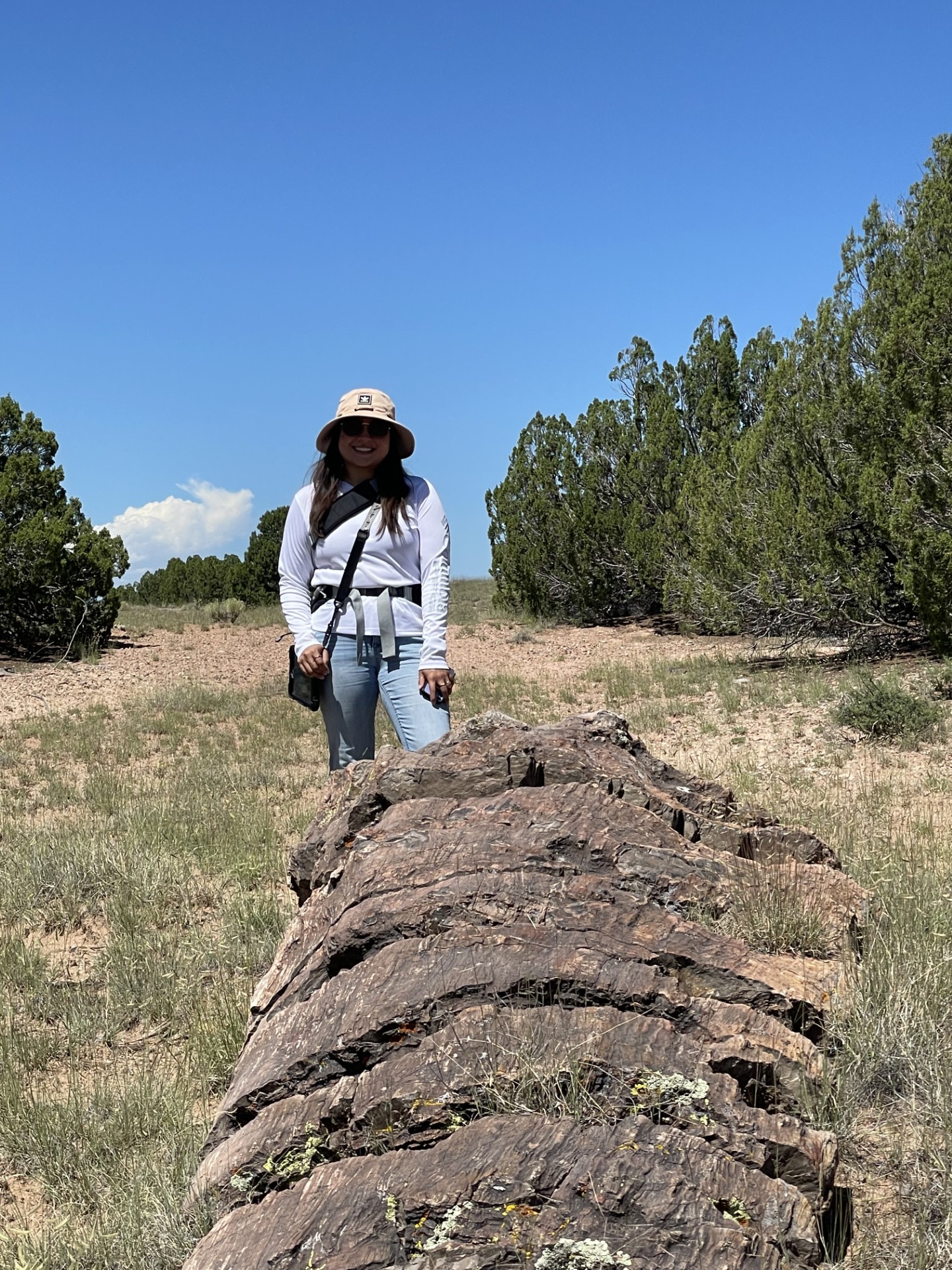
Melanie Solis Alvarez
Melanie Solis Alvarez (she/ her) joined the lab in spring 2026 as a master’s student co-advised by Dr. Wiebke Boeing in the Department of Fish, Wildlife and Conservation Ecology. Her research focuses on a horizon scan on ongoing and emerging issues regarding ecosystem structure and function. Originally from Santa Fe, NM, Melanie received her B.S. in Environmental Science from the University of Portland in 2022. As an undergraduate, she worked as a Research GIS Assistant. She also holds an A.S. in General Engineering from Santa Fe Community College. Melanie is the Stewardship Associate at the Santa Fe Conservation Trust, where she monitors conservation easements and does various restoration work on SFCT properties. In her free time, Melanie enjoys cooking, watching movies, traveling, and enjoying the outdoors.
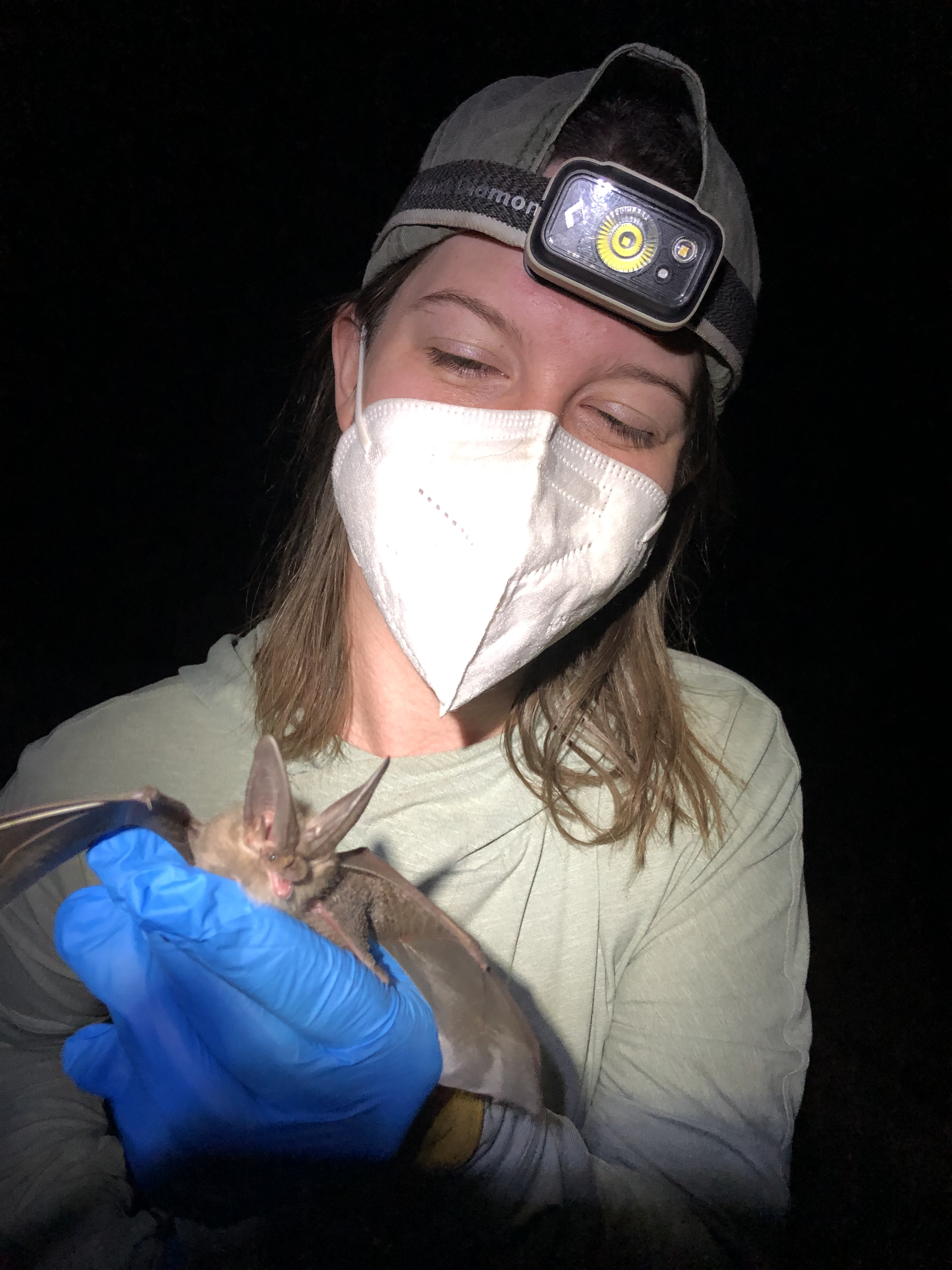
Brandi Stevenson
Brandi Stevenson (she/her) joined the lab in spring 2023 as a master’s student in the Department of Fish, Wildlife and Conservation Ecology. Her research focuses on the ecology of nectar-feeding bats in the Southwest. Brandi came to New Mexico from Houston, Texas, and earned her B.S. in Ecology from the University of Houston-Clear Lake in 2019. For her undergraduate senior thesis, she documented the composition of a bat community in the Brazilian Amazon. Before NMSU, Brandi worked with bats as a field technician and crew leader on a variety of research projects across the United States, including foraging studies of insectivorous and nectarivorous bats, swabbing bats to survey for white-nose syndrome, and fatality searches underneath wind turbines. During her free time, she enjoys finding new trails to hike and photographing wildlife.
Holly Whited
Holly Whited (she/her) joined the lab in fall 2023 as a master’s student in the Department of Fish, Wildlife and Conservation Ecology. Broadly, her research centers on the ecology of bats in the Southwest. She received her B.S. in Wildlife Management from the University of Tennessee, Knoxville in 2022. While an undergraduate, she conducted research on secondary seed dispersal by small mammals in Southern Appalachia, completed internships surveying for bats with a state agency, and collected foraging data on an endangered bat species alongside a graduate student. Holly has also volunteered her time with the Tennessee Bat Working Group and Southeastern Bat Working Group, where she gained experiences surveying caves, swabbing bats for white-nose syndrome, harp trapping, tagging, and tracking bats with radio telemetry. Before moving to New Mexico, she spent a summer working for a consulting agency on a variety of projects with bats across the eastern United States and assisted on a project trapping and radio tagging eastern spotted skunks. In her free time, she enjoys seeing live music, camping, hiking, and kayaking.